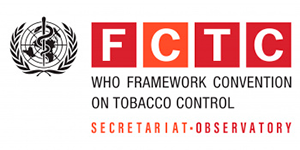
The tobacco industry has been highly resourceful in undermining government efforts to protect public health. Companies have become experts in creating and exploiting loopholes in the law and in liaising with lobbyists to influence the drafting of laws with their particular views.
In a presentation to the Philip Morris Board in 1995, the company's then Senior Vice President of Global Regulatory Affairs stated:
"Our goal is to help form regulatory environments that enable our company to achieve its goals (...) aggressively fighting with all available resources against any attempt by any party to diminish our ability to manufacture efficient products and market them effectively "(...)1.
The range of strategies used by the tobacco industry to influence political and legislative processes includes promoting partnerships with lobbyists to achieve self-interested decisions over and above those that serve the common good. Existing evidence suggests, for example, that in several countries the tobacco industry has tried to underestimate the country's position in the negotiation of the Framework Convention on Tobacco Control (WHO) and continues to try to impede the implementation of the treaty2 3 4 5 6.
Tactics used by the tobacco industry include:
- incite controversy between the ministries of finance, commerce, and other bodies, as opposed to the Ministry of Health;
- use trade associations and other front groups to lobby on your behalf; and
- to guarantee its access to the negotiations of the Framework Convention on Tobacco Control (WHO), through its contacts established with International Organizations such as ISO, which standardizes and normalizes products and services 7.
There are many examples of tactics used by the tobacco industry to promote their interests and weaken countries' legislation, such as:
- create and exploit legislative 'gaps';
- demand a place on government decision-making bodies;
- promote voluntary regulations rather than legislation; and
- draft and distribute "samples" of industry-friendly laws, which even write tobacco control jargon and other legislation to ensure that any regulatory measures are not too restrictive of the industry's business practices.
- 1. PHILIP MORRIS. Corporate worldwide regulatory affairs issues review prospects and plans. Legacy Tobacco Documents Library, United States, Apr 29. 1995. Available at http://legacy.library.ucsf.edu/tid/jww95a00. Accessed on Nov. 14 2014
- 2. GRUNING, Thilo et all. Tobacco industry attempts to influence and use the German government to undermine the WHO Framework Convention on Tobacco Control. Tobacco Control, United States, n. 21, p. 30-38, 2012. Available at http://tobaccocontrol.bmj.com/content/early/2011/06/15/tc.2010.042093.fu.... Accessed on Nov. 17 2014.
- 3. MAMUDU, Hadii; HAMMOND, Ross; GLANTZ, Stanton. International trade versus public health during the FCTC negotiations, 1999-2003. Tobacco Control, United States, 2011. Available at: http://tobaccocontrol.bmj.com/content/20/1/e3.full. Accessed on Nov. 17 2014
- 4. OTAÑEZ, Martin; MAMUDU, Hadii; GLANTZ, Stanton. Tobacco companies use of developing countries economic reliance on tobacco to lobby against global tobacco control: the case of Malawi. American Journal of Public Health, United States, v. 10, no. 99, p. 1759-1771, 2009. Available at http://www.ncbi.nlm.nih.gov/pmc/articles/PMC2741530/. Accessed on Nov. 17 2014.
- 5. ASSUNTA, Mary; CHAPMAN, Simon. Health treaty dilution: a case study of Japan's influence on the language of the WHO Framework Convention on Tobacco Control. Journal of Epidemiology and Community Health, United States, vol. 9, n. 60, p. 751-56, 2006. Available at: http://jech.bmj.com/content/60/9/751.full. Accessed on: Nov. 19 2014
- 6. LEE, Sungkyu; LING, Pamela; GLANTZ, Santon. The vector of the tobacco epidemic: tobacco industry practices in low and middle-income countries. Cancer Causes and Control, v. 23 (Suppl. 1), p. 117-29, 2012. Available at: http://link.springer.com/article/10.1007%2Fs10552-012-9914-0. Accessed on Nov. 17 2014
- 7. BIALOUS, Stella; YACH, Derek. Whose standard is it anyway? How the tobbaco industry determines the International Organization for Standardization (ISO) standards for tobacco and tobacco products. Tobacco Control, United States, n. 10, p. 16-104, 2001. Available at: http://tobaccocontrol.bmj.com/content/10/2/96.full. Accessed on: Nov. 18 2014.











